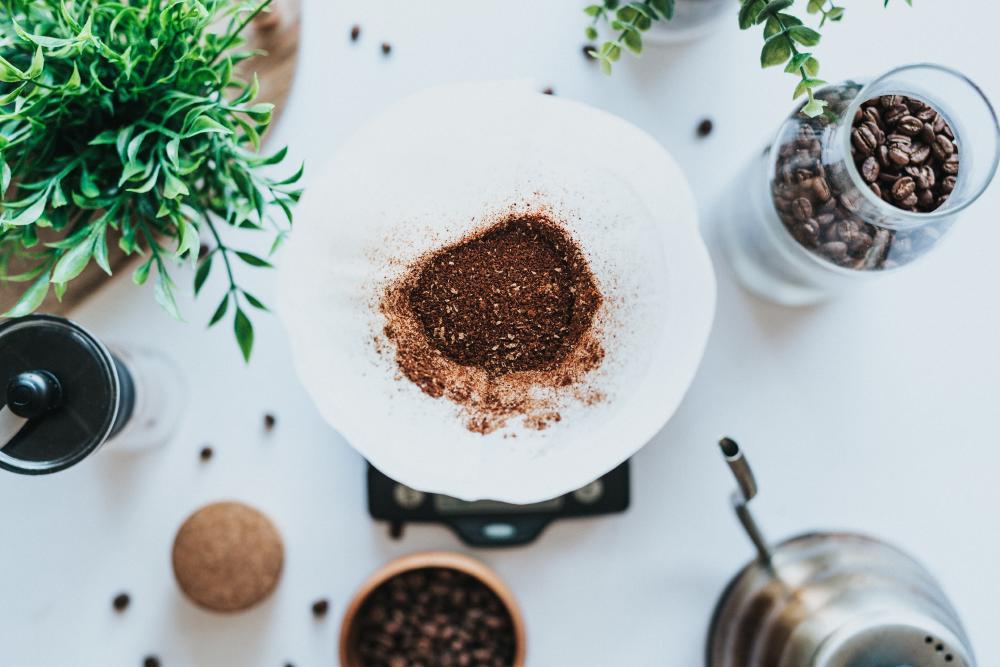
Should I Start Composting with Coffee Grounds? Composting is in right now, this is because is an easy practice you can start in your garden and even in your apartment. And there are a lot of things we can add to our compost bin, including, coffee! Coffee beans are not only the primary source of energy and a must-have in our morning rituals, they contain a lot of nutrients that can help our compost be richer and our plants grow stronger. So let's check out a few bases on composting and how can we incorporate coffee beans into it.
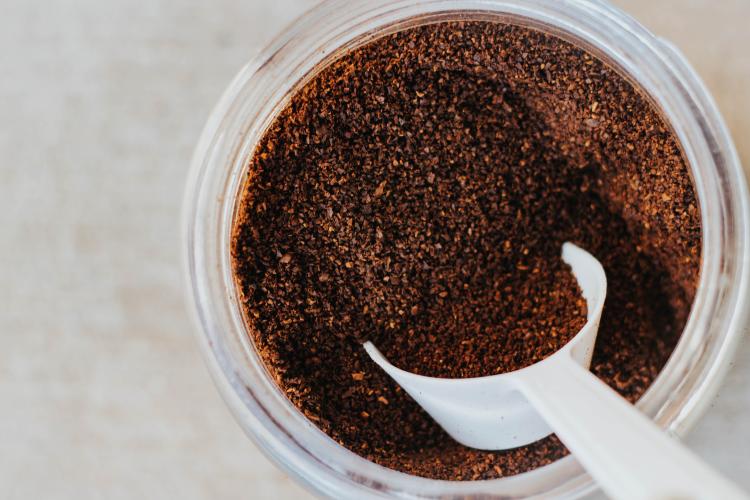
Composting is fairly easy and what is best is that you can actually do it if you have a big space with a green area or an apartment. Is basically the process of mixing organic waste to grow organic materials. And composting mostly has two components that are needed to make it work. These components are called Greens and Browns. It is quite simple. Here is how to differentiate them:
So basically greens are the humid components and browns are the dry components.
And for your composting to succeed you need to have in mind your Compost Ratio, which is the balance between green and browns. To become a master at rationing your composting check out our article on The Perfect Compost Ratio: Greens to Brown Balance.
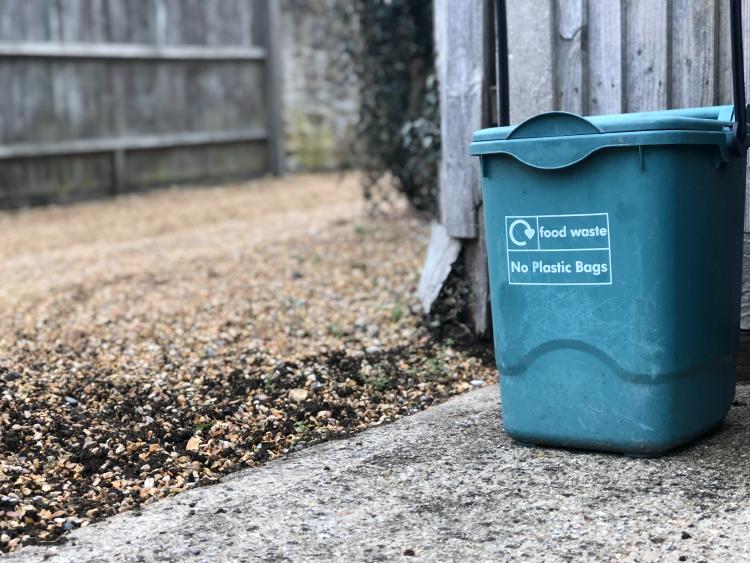
There are many ways you can make your compost into the black gold you are looking for, and one great way of doing it is by using coffee beans. Here are a few benefits of composting with coffee grounds:
Composting with coffee grounds is a great idea. They not only help to get nutrients to your garden, but they are also great if you are composting with worms and help maintain a steady temperature along with extra cold or extra-warm weather.
Composting with coffee grounds also helps you keep out plages from your grade, such as snails and slugs that can really harm your plants.
As I was saying, the Compost Ratio is crucial for the good development of the compost. This means we need to know what kind of component are the coffee grounds. Since coffee is browned colored, you might think coffee grounds belong in the browns side of the spectrum, but no. Actually, coffee grounds are Green materials, they contribute humidity to the mix and they have big amounts of nitrogen. Which is a key element you need while composting.
To start adding coffee grounds to your compost first you need to assess is how is your Compost Ratio doing. If you see your compost is too humid, I recommend you add first more brown material such as dry leaves, and newspaper to make sure that when you add the coffee grounds to your compost you won't be adding too much moisture to the mix.
If you do so, don't worry you can just keep adding brown materials until you make it right.
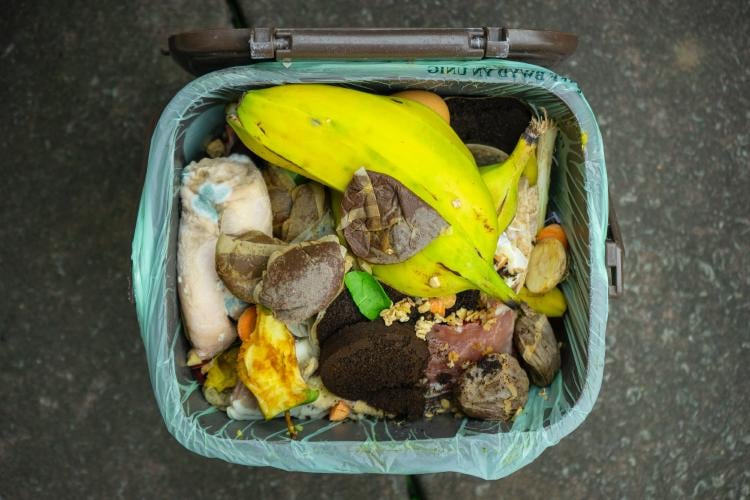
The trick is never to let it have more green material than it should, why is that? Well, the compost bin, or pile might start to smell. You don't have to let it have more browns, since that won't be enough for the compost to reach the temperature it needs to actually start working.
If you are just starting composting this article is for you: How to Make a Compost Pile? All you need to know about it
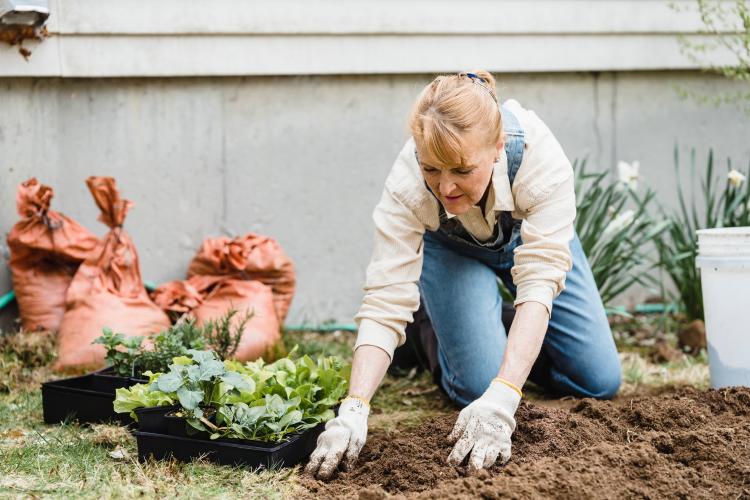
There are different ways you can use coffee grounds to help your garden. One option is to start composting with coffee grounds. But how do I do it? Is not that hard let's see:
As you know, there are two main categories of things that can be composted. Those are the greens and the browns. For a full detailed list here is an article for you: What can I Compost? A Complete List of What can I Compost.
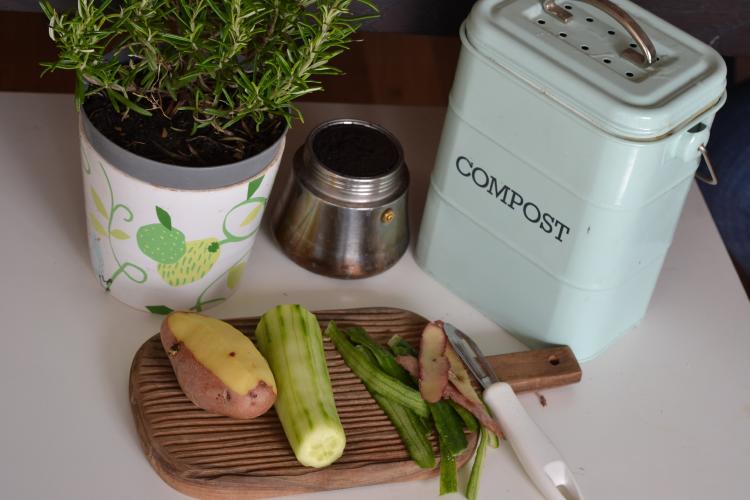
Composting is a great way to help climate change by avoiding landfills being full of organic matter that will not decompose correctly and will be emitting extra CO2 into the atmosphere. Because this is a real problem but is a problem that can be solved from our own households. Check out our Ultimate Guide about Food Waste and its Impact on the Environment.
So composting with coffee grounds is helping the environment, and you will have less garbage to take out!
So while composting with coffee grounds, you can use not only the grounds leftover in your coffee maker. You can also use the filters, as long as they don't have any plastic materials. Or you can also use the actual coffee to water your plants (in small quantities), making sure you did not add sugar, Splenda, or milk to it.
Remember there is a difference between fresh coffee grounds and used coffee grounds. You can compost fresh coffee grounds. I mean you can, but you should not. This is because fresh coffee grounds are actually way more acidic than used coffee grounds, this might damage the pH balance of your compost pile or bin. And it can even harm the soil if you use them directly there.
You may be wondering about are coffee grounds good for worms? The simple answer is yes, coffee grounds are good for worms, specifically for worms that call your compost their home.
A good way to start is using coffee grounds in your compost once a week. You will see a difference in their behavior because worms love coffee grounds. Composting with coffee grounds is all about balance, just be careful about adding too much to your compost because they can increase the acidity component of the compost making it not perfect. A cup of coffee grounds per week should be fine on a small compost bin.
If you have a compost pile in the garden and you want to add more worms, it is just as easy as start composting with coffee grounds. Coffee grounds will make your compost pile attractive to all the worms that are living near the perimeter, so is as easy as that.
And if you think some areas of your garden need more worms than others, just start putting coffee grounds straight into the soil as fertilizer. You will have a colony of worms in that spot in no time.
Even though worms love coffee grounds, composting with coffee grounds can also help you keep away other animals that are not as welcome as the worms in your garden.
Composting with coffee grounds will help you keep the pests away. Using them as fertilizer straight to the soil will keep any organism you don't want near.
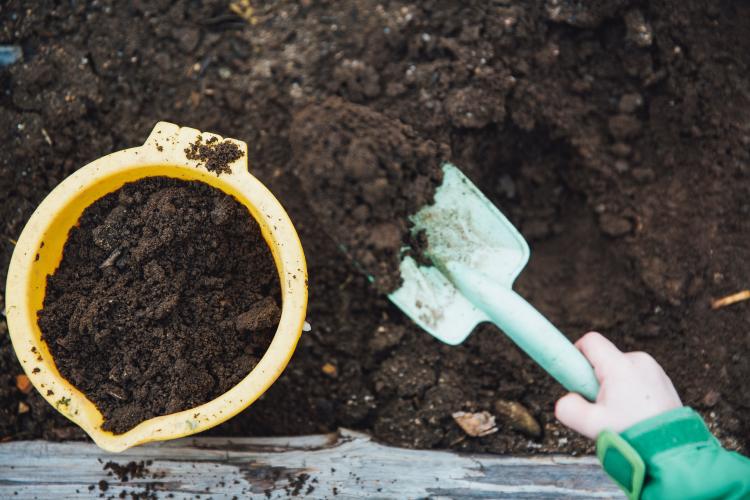
You can even place them as an actual barrier, this way you'll protect your plants. Slugs, snails, and even cats are not attracted to coffee grounds. So whether if you start composting with coffee grounds or use them as fertilizer straight to the soil, you will be adding a protective agent to your garden.
As you can see, composting with coffee beans can really help your gardening if used in the correct amounts and in the right ways.
Make sure you read on how to balance your Compost Ratio, then everything will be much more easy!